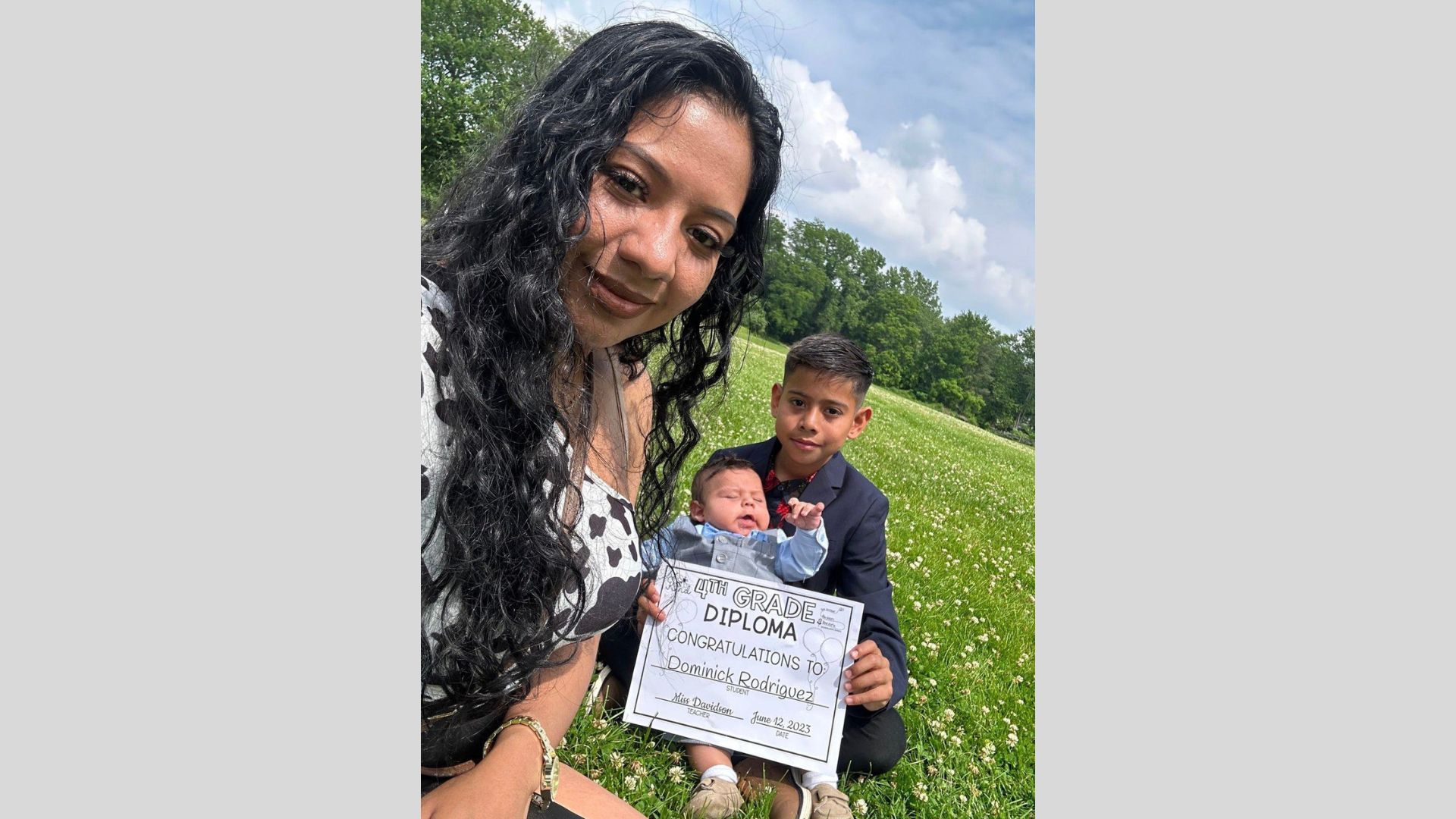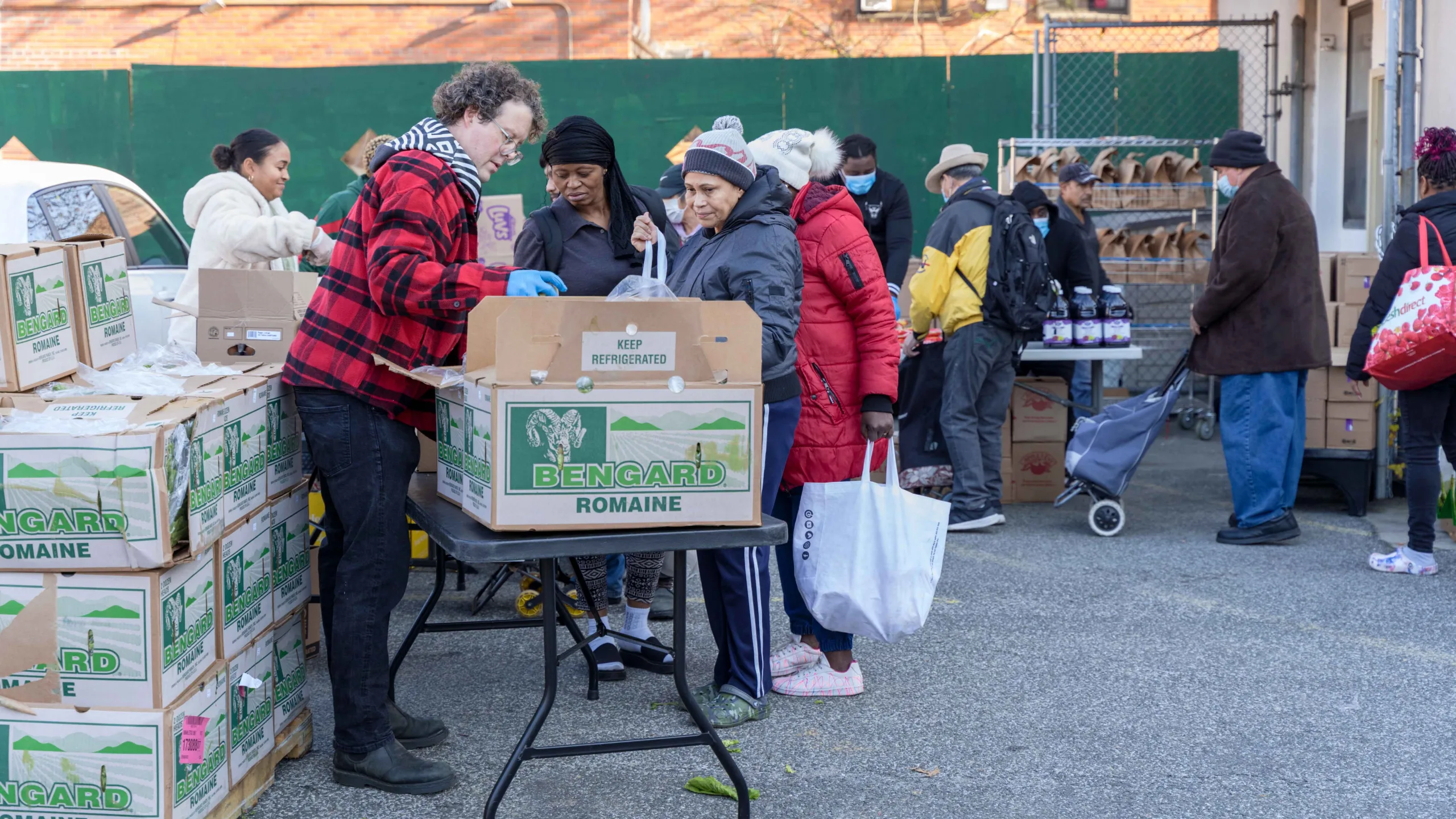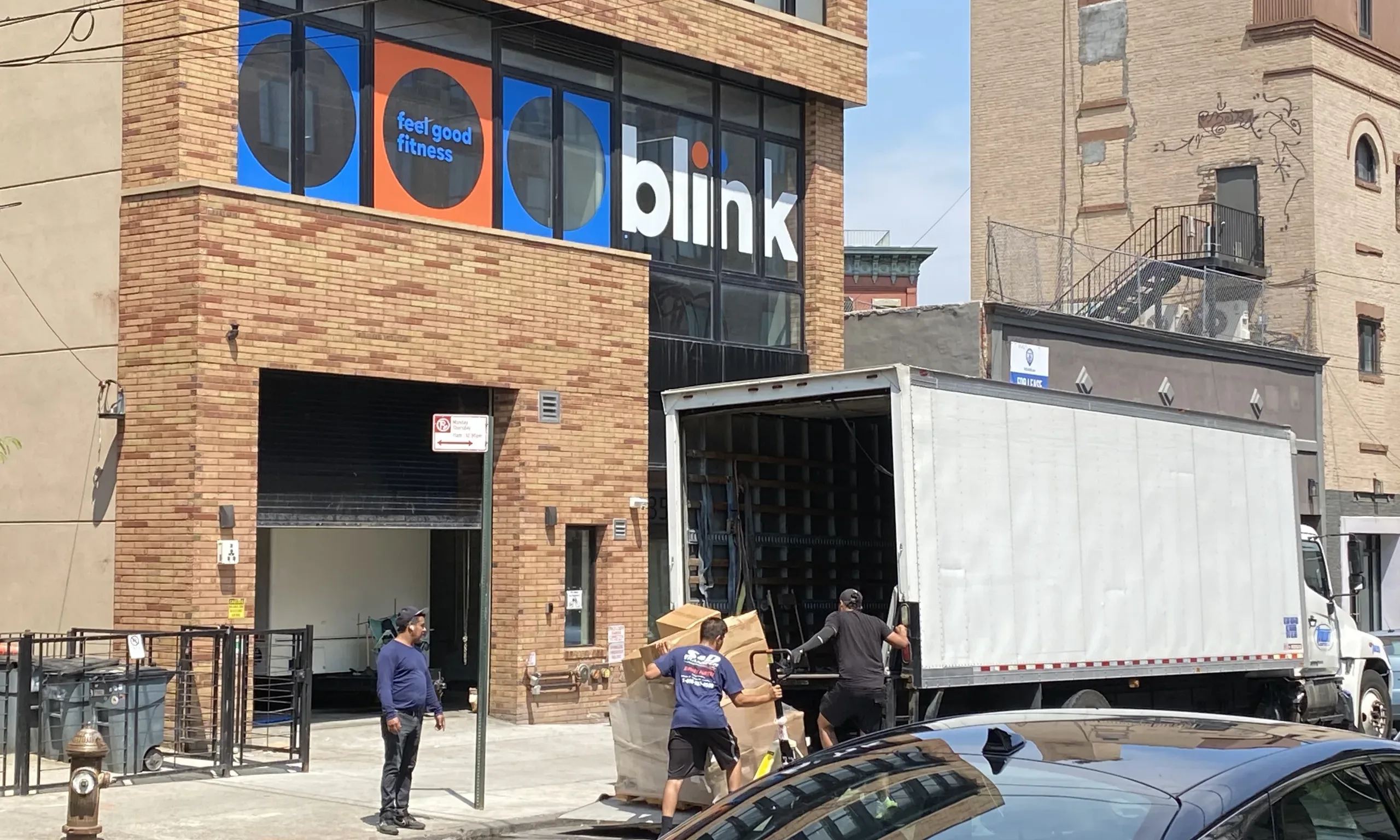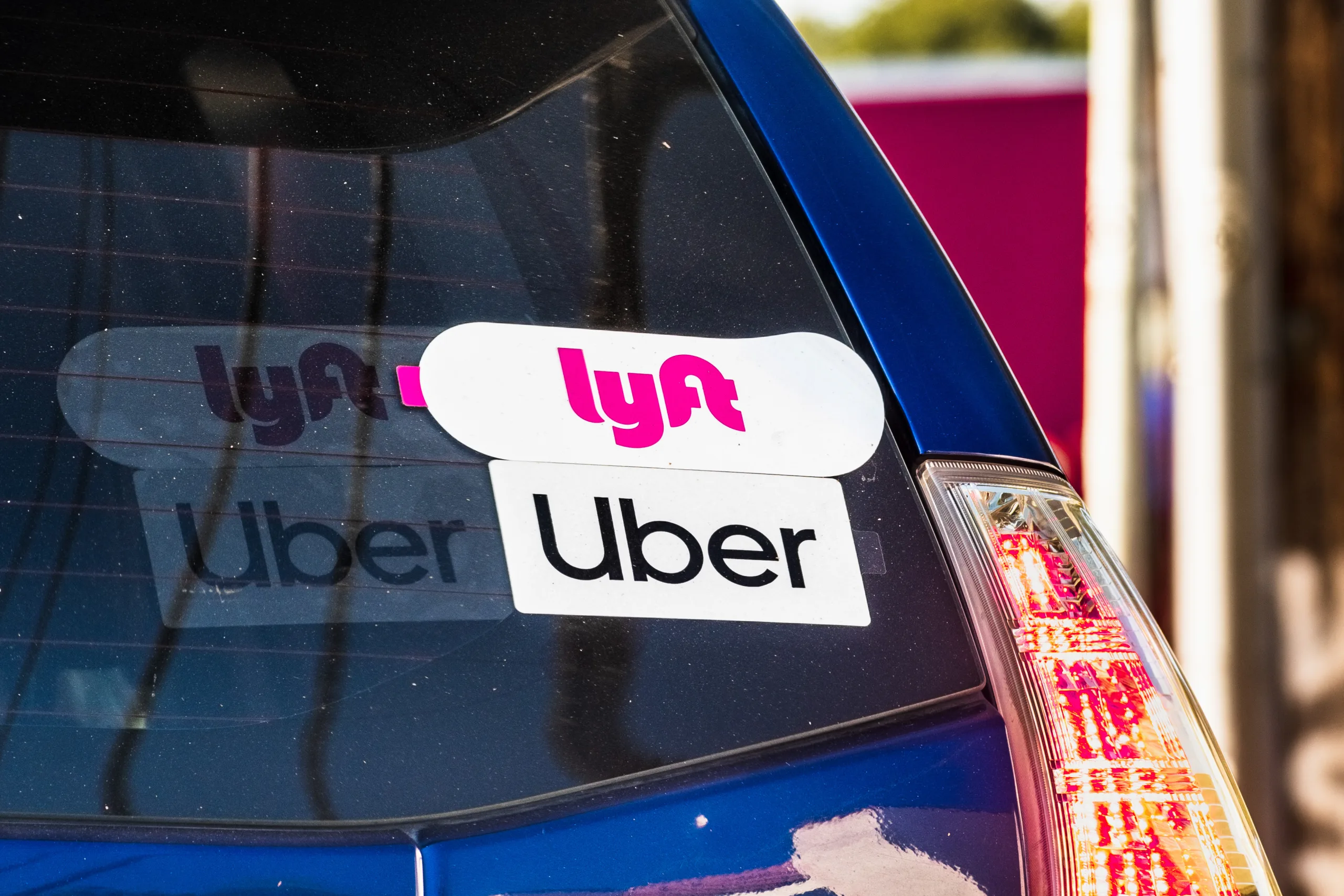The 10-year-old boy sat in a chair that was too big for him and he asked the immigration judge in Spanish if he could speak to the court.
“Please, don’t deport me,” the boy, Dominick Rodriguez-Herrera, pleaded into the microphone. “I want to stay with my brother.”
Then he buried his head into his mother’s stomach as they embraced, tears welling in both their eyes. “Don’t cry,” his mother told him softly, with one arm around Dominick, and the other holding her two-month-old son who whined on her shoulder.
Also Read: The Central American Minors Program Struggles to Get Back on Its Feet
The family, from Guatemala, was at the Broadway immigration court in Lower Manhattan last week for an initial hearing in Dominick’s immigration case. Dominick had crossed the U.S.-Mexico border alone in March of 2022, and was designated as an unaccompanied minor.
Dominick’s mother, Nelly Herrera, told Documented the ordeal began when they were both kidnapped in Mexico and separated. She said Dominick escaped their captors and reached the U.S. border. Malnourished and thin from weeks of little food, he managed to squeeze through a wall into California, although she’s not sure where. He was only eight years old, and had no idea where his mother was.
“He doesn’t talk about all that a lot because he says it’s something he doesn’t want to be reminded of anymore,” she said.
After authorities helped Herrera escape her captors in Mexico, she and Dominick were reunited last year. Now, without a lawyer, they are fighting for a chance for Dominick to stay with her in the U.S.
At a time when immigration courts are struggling to manage the high volume of migrants coming to New York City, another section of the system is facing a high volume of deportation cases: those of unaccompanied minors – children who entered the U.S. when they were under the age of 18, without a parent. Many of them show up to court without an attorney, and advocates are concerned that there aren’t enough resources to reach all of them.
“We are definitely seeing an uptick in the numbers,” said Sierra Kraft, executive director of a coalition called the Immigrant Children Advocates Relief Effort (ICARE).
Kraft said she observed the juvenile docket several times this year and found hundreds of children had come to court without legal representation.
“There was a little two year old that was sitting there with a sponsor, and they had no representation and really no idea what to do next. So it’s a real crisis,” Kraft said.
From October of 2017 through March of 2021, the Executive Office of Immigration Review completed almost 42,000 cases of unaccompanied children, according to a 2021 Congressional research service report. Of that group, almost 20,000 children had no legal representation – and 90% of those without lawyers were ordered deported from the U.S. Of more than 22,000 children with legal representation, 37% were ordered deported, the report says.
The list of the children without representation at last week’s court hearing included a 13-year-old boy from the Dominican Republic staying with his uncle’s wife in the Bronx; a 16-year-old girl from Guatemala living with her aunt in New Rochelle; a nine-year-old boy from Guatemala living with his father, also in New Rochelle; and a 17-year-old girl from Guatemala living with a distant relative in the Bronx.
Dominick was one of the youngest children in the courtroom that day. He had only just finished 4th grade, but he exuded maturity. He wore a collared shirt and carried a large backpack with his black hair perfectly combed back. He remained alert, walking up to the judge to give out his new mailing address, collecting his documents for a next court date, and pulling out papers to show the judge that he was enrolled in school.
The judge hearing Dominick’s case, Olivia Cassin, read one of the certificates from his school out loud. “Dominick has worked so hard since joining us,” it said. “Keep up the awesome work.”
His favorite subject in school was math and he loved to play as a forward on the soccer field when he wasn’t in school, he told the judge.
Herrera, his 26-year-old mother, tried to juggle her attention between breastfeeding her two month old who cried, and catching the information about Dominick’s case. The family had made the nearly three-hour trip from their home near Hartford, Connecticut to Lower Manhattan for the hearing.
“If I wouldn’t have taken him to court, he would have gotten a deportation order,” Herrera said. “We were scared, because you don’t know the situation, and the language. It’s really hard.”
Judge Cassin addressed Dominick directly and informed him of his rights. She said that according to the government, Dominick was in the U.S. without permission, and if he did not show up to his next hearings he could be issued a deportation order. She stressed the importance of obtaining a lawyer for his immigration proceedings.
Dominick might be eligible for relief to stay in the U.S., but the immigration system is complicated, the judge said. “That’s why you want to speak to a lawyer who knows the immigration laws,” she told the family. The Judge handed them a list of organizations which provide pro bono legal assistance to unaccompanied minors, and opted to give the family more time to find an attorney for Dominick.
“Thank you so much, God bless you,” Dominick’s mother told the Judge.
Judge Cassin spent the morning presiding over the juvenile court docket in immigration court – which is largely made up of unaccompanied minors – urging children and their sponsors to find lawyers.
On the day Dominick was in court, there were 38 other people listed on Judge Cassin’s juvenile docket posted outside her courtroom, and only about half of them were represented by an attorney. She warned the families: it could be hard work to find a lawyer for unaccompanied children, and the groups that provided free legal representation were stretched thin.
“These organizations are very full,” Judge Cassin told the group of about 12 people sitting on the benches of the immigration court room. “It’s important that you start looking for a lawyer right away.”
Right now, the wait for unaccompanied children to receive a legal screening is several weeks, said Alexandra Rizio, the Managing Attorney for Policy and Partnerships at Safe Passage Project, one of the organizations in the ICARE coalition. Children have to wait about six months between the screening and when a lawyer can take on their case.
“Because all of our staff are really at max capacity in terms of their caseload, we have to wait for cases to close out before we can take another one,” Rizio said. “We are not unique in this situation. It’s every nonprofit that is at capacity.”
The group is hiring additional attorneys to try and meet the need, Rizio said, and is screening at least 60 children a month, who are referred by other nonprofits, schools, and hospitals.
Rizio worries that it may be harder to track children down if there are long waiting periods to match them with an attorney, and said it shouldn’t be so difficult to find one.
“Are they going to kind of fall off the map if we can’t match them with an attorney right away?” Rizio asked. “They’re going to be living in the shadows.”
From October of 2021 through September of 2022, more than 152,000 unaccompanied minors entered the United States – the highest number that immigration authorities have ever recorded in a single fiscal year, according to U.S. Customs and Border Protection data.
TestPost3
At a Senate hearing on the safety of unaccompanied migrant children in Congress last week, Lorie Davidson, Vice President of Children and Family Services at Lutheran Immigration and Refugee Service, testified that most unaccompanied children do not have an attorney to represent them.
“I do not know of any other circumstances in which a three-year-old would have to represent themselves in court. It is indefensible,” Davidson said at the hearing.
The countdown has begun for Dominick to find an attorney to represent him at his next court date in January. His mother plans to call the numbers on the list Judge Cassin gave her to try and find a lawyer for her son. In addition to caring for Dominick and his infant brother, she has a job cleaning a hotel. She said the family is living paycheck to paycheck and is unable to pay for an attorney, so a pro bono lawyer is Dominick’s only option.
“I am just hoping for some assistance for him. With that, I would be more than grateful,” she said.












